Info
11 Proven Benefits of Turmeric Tea for Skin, Preparation, and Precaution
Turmeric is an invaluable herbal spice known for its ability to support skin health, digestion, stress management, and immune function when consumed as a drink, food ingredient, or supplement. Among all its benefits, the advantages of turmeric tea for skin and digestion are particularly noteworthy. Read on to discover more about the benefits of turmeric tea.
Turmeric has long been celebrated in both culinary and medicinal contexts for its wound-healing capabilities and myriad health benefits.
It is the rhizome of the Curcuma longa plant, recognized for its vibrant yellow hue, and it belongs to the same family as ginger. This potent root contains a wealth of antibiotics, anti-inflammatories, antimicrobial properties, and healing compounds.
Both the root and powder have numerous applications across the food, health, and beauty industries. Additionally, turmeric has been used in Ayurveda and Traditional Chinese Medicine for thousands of years as a remedy for coughs, fevers, colds, wound healing, and skin conditions such as infections, redness, and pimples.
India is the leading supplier of turmeric, accounting for 78% of the global export market. Thus, turmeric tea and the use of turmeric powder in drinks are particularly popular in India and its neighboring countries.
Drinking turmeric tea is one of the best ways to experience the numerous benefits of this remarkable spice for skin and overall health. The tea provides a soothing experience, promoting relaxation within tissues, muscles, nerves, and other body areas. Herbal teas serve as effective natural remedies for stress, anxiety, depression, fatigue, headaches, and migraines.
Related: Health benefits of Moringa herbal tea
Although ongoing research continues to explore turmeric’s effects on human health, many firmly believe in its skin benefits.
What is Turmeric Tea?
Turmeric can be consumed in various forms, including as a spice, powder, tinctures, and supplements, and is increasingly found in skincare products.
The spotlight shines on curcumin, a bioactive compound in turmeric, for its extensive health benefits.
Curcumin possesses antioxidants and anti-inflammatory properties, contributing to enhanced immunity, healing, and improved natural beauty.
Turmeric tea and its supplements are often recommended in high concentrations due to curcumin’s low bioavailability, meaning the body absorbs it slowly.
Turmeric tea can be brewed from turmeric powder or fresh turmeric root. It’s a simple and effective way to enjoy the herb’s benefits.
There’s no definitive dosage for turmeric, as the right amount often depends on the condition being treated. However, most research suggests a daily intake of 400 to 600 mg of turmeric powder, taken in three doses, is generally effective. For fresh or dried turmeric root, a common guideline is 1 to 3 grams daily.
While turmeric tea, herbal supplements, and topical treatments may be gaining popularity in the Western world, in many Asian cultures, turmeric has long been valued for its culinary, medicinal, and beauty applications.
Although methods for applying turmeric to the skin may require more research, consuming turmeric tea—often referred to as the Golden Drink—is undoubtedly a fantastic choice.
Turmeric tea can be enjoyed with milk as a turmeric latte or without milk as a herbal tea by mixing the turmeric paste in hot water with a touch of honey.
In Western countries, turmeric lattes are typically prepared without espresso or caffeine, featuring turmeric, ginger, almond milk, and natural sugars.
Turmeric tea, made from this ancient Indian herb, has proven effective for various skin issues ranging from acne to arthritis, leading to its global popularity.
Let’s delve into the impressive benefits of turmeric tea for skin and overall health.
11 Benefits of Turmeric Tea for Skin
Turmeric tea offers numerous benefits for skin health, addressing concerns such as acne, dark spots, and more.
Here are some science-backed benefits of consuming turmeric tea:
1. Turmeric Tea for Natural Skin Glow
Curcumin possesses anti-inflammatory and antioxidant properties that naturally enhance skin radiance. Turmeric’s revitalizing effects help restore the skin’s natural glow.
Drinking turmeric tea in the morning can cleanse the body and boost skin health from within.
2. Turmeric Tea for Psoriasis
Studies indicate that turmeric may help manage psoriasis symptoms by leveraging its anti-inflammatory and antioxidant properties.
Psoriasis is an autoimmune disorder characterized by the rapid production of skin cells, leading to scaly patches that can become painful.
Curcumin’s anti-inflammatory properties help mitigate skin cell overproduction and associated irritation.
The National Psoriasis Foundation recommends turmeric tea and supplements for those suffering from psoriasis, advocating for consultation with a healthcare professional for appropriate dosage.
3. Turmeric Tea for Wounds
Turmeric is well-known for its wound-healing properties. Its anti-inflammatory and antioxidant activities can reduce inflammation and soothe pain associated with injuries.
Drinking turmeric tea may expedite the healing process, as it promotes tissue generation and collagen production which are beneficial for healthy skin.
4. Turmeric Tea for Scabies
A 2017 study in India found that a combination of turmeric and neem was 97% effective in treating scabies, a skin condition caused by tiny mites that result in rashes.
The antimicrobial, antiseptic, antibacterial, and antibiotic properties of both turmeric and neem contribute to this efficacy.
5. Turmeric Tea for Acne
For those using home remedies for acne, incorporating turmeric into your regimen can be beneficial. Turmeric acts as an excellent exfoliator, targeting clogged pores and soothing the skin.
Its pore-cleansing, anti-inflammatory, and scar-reducing properties help combat acne breakouts effectively.
Acne is often caused by Propionibacterium acnes, a type of bacteria that can be treated with antibiotics.
The antibiotic properties in turmeric can combat these bacteria, particularly as demand for pharmaceutical antibiotics increases due to resistance.
A 2013 study concluded that curcumin and lauric acid effectively combat acne bacteria.
While topical use is often recommended for treating acne, pairing it with turmeric tea can enhance results and promote better overall skin health.
6. Turmeric Tea for Sun Damage
Environmental factors such as pollution and UV rays can significantly impact skin health, causing issues like fine lines, sunburns, wrinkles, and pigmentation. Turmeric can help counteract these effects.
In an animal study, turmeric antioxidants were shown to improve sun damage in rats, suggesting potential benefits for humans as well.
Pollution harms the body’s natural antioxidant defenses, while UV rays reduce skin elasticity. Turmeric’s antioxidants bolster the body’s defense mechanisms by preventing free radical damage and maintaining skin softness.
To cleanse from internal damage after sun exposure, enjoy a cup of turmeric tea, and for external damage, consider using a turmeric face mask each week.
7. Turmeric Tea for Skin Lightening
Research indicates that turmeric can effectively lighten and brighten your skin tone with consistent usage over three weeks. The powerful antioxidants and anti-inflammatory compounds in turmeric facilitate skin healing and restoration.
Brewing turmeric tea provides the same benefits. For those who are concerned about topical applications or have time constraints, replacing your morning caffeine with a hot cup of turmeric tea can yield excellent results.
8. Turmeric Tea for Hair Removal
A study demonstrated that turmeric may assist in hair removal and slow hair growth. In this study, 60 women applied turmeric oil for 10 weeks to their underarms, with significant reductions in hair growth observed.
The required time for hair removal varies based on hair texture.
For the best results, topical application is recommended over oral intake when it comes to hair removal.
9. Turmeric Tea for Arthritis
Curcumin in turmeric possesses anti-inflammatory and antioxidant properties that may alleviate symptoms associated with arthritis, a common skin condition.
A 2017 study surveyed 200 adults in America with rheumatoid arthritis, revealing that around 63% of them utilized non-vitamin supplements, prominently featuring turmeric, to treat their symptoms.
10. Turmeric Tea for Irritable Bowel Syndrome
Digestion and regular bowel movements are essential for optimal skin health. For centuries, turmeric has been a trusted remedy for indigestion and other gastrointestinal issues.
Research indicates that turmeric may alleviate pain associated with irritable bowel syndrome (IBS) and improve overall conditions for those affected.
Poor digestive health can lead to skin issues such as spots, inflammation, eczema, and rosacea.
An animal study conducted in 2012 demonstrated that turmeric might accelerate gastric emptying, the process in which food moves from the stomach to the small intestine.
11. Turmeric Tea for Skin Conditions
While there’s limited evidence directly linking turmeric to skin conditions, various studies suggest its effectiveness in treating eczema, lichen planus, and other skin issues.
As interest in herbal remedies continues to grow, we can anticipate more targeted studies on turmeric to validate its skin-related benefits.
Health Benefits of Turmeric Tea
1. Turmeric Tea for Immunity
Regular consumption of turmeric tea can strengthen your immune system. Turmeric contains antioxidants, antiviral, anti-inflammatory, and antibacterial properties that boost immunity.
Curcumin in turmeric has been found to regulate immune cell functions against cancer, making it a powerful ally for your health.
2. Turmeric Tea for Cardiovascular Health
Research demonstrates that curcumin positively impacts cardiovascular health. The herb acts as an anti-inflammatory and antioxidant, which is vital for heart health.
A 2012 study indicated that consuming 4 grams of turmeric daily before and after coronary artery bypass surgery reduced heart attack risk by 17%.
3. Turmeric Tea for Cancer
Extensive studies have examined the anti-cancer properties of turmeric.
High levels of antioxidants and anti-inflammatories present in turmeric help reduce the risk of cancer and inhibit tumor growth by countering free radical damage to cells.
One review published in 2014 identified over 2000 studies in medical journals discussing the relationship between cancer and curcumin.
Furthermore, the use of turmeric in conjunction with radiation therapy and chemotherapy is actively being researched.
4. Turmeric Tea for Alzheimer’s Disease
Herbal teas, including turmeric tea, serve as effective remedies for neurodegenerative conditions. They help alleviate stress, depression, anxiety, and insomnia while relaxing the brain.
Research indicates that turmeric may reduce the risk of developing neurodegenerative diseases. Antioxidants and anti-inflammatories in the spice help protect brain cells by countering free radical damage and inflammation associated with Alzheimer’s disease.
Additionally, turmeric may potentially delay age-related cognitive decline.
5. Turmeric Tea for Liver Health
Turmeric’s antioxidant properties enable the removal of toxins from the body, supporting healthy liver function.
It may also increase the production of digestive bile in the liver and gallbladder while safeguarding liver cells from oxidative stress and free radical damage.
6. Turmeric Tea for Diabetes
Traditional medicine from Asia has utilized turmeric to manage diabetes and regulate blood sugar levels for centuries.
Modern studies involving both animals and humans have shown that turmeric possesses potent anti-diabetic properties, helping to alleviate inflammation, regulate insulin levels, and reduce intestinal food absorption time.
7. Turmeric Tea for Lungs
Research indicates that turmeric’s anti-inflammatory and antioxidant properties may alleviate symptoms and complications associated with chronic lung conditions.
A 2017 review highlighted that, although evidence remains limited, turmeric supplementation may aid in treating asthma, lung cancer, injuries, and chronic obstructive pulmonary disease (COPD).
How to Use Turmeric for Skin?
Turmeric powder can be consumed orally or applied topically.
Drinking turmeric tea is generally more beneficial than using it topically. Here’s why:
While topical applications are effective for treating localized issues like wounds and infections, ingesting turmeric tea offers systemic benefits that address broader skin concerns by enhancing overall body health.
Topical turmeric treatment can help manage concerns on the skin’s surface, but turmeric tea promotes internal healing, boosts energy, calms the mind, and improves overall quality of life.
Opting for herbal drinks and supplements is a fantastic approach to maintaining overall well-being.
How to Prepare Turmeric Tea
You can prepare turmeric tea using either turmeric powder or fresh turmeric root. Alternatively, try turmeric teas from Moolihai.com that contain high concentrations of curcumin—an active component that provides numerous health benefits, including anti-inflammatory and immune-boosting effects.
Making Turmeric Tea with Powder
- Boil 4 cups of water.
- Add 1 to 2 teaspoons of turmeric powder to the water.
- Simmer the mixture for 10 minutes.
- Strain the tea into a cup and let it cool for a minute before consuming.
Making Turmeric Tea from Store Products
- Boil a cup of water.
- Remove from heat and add a tea bag or 1 teaspoon of turmeric tea powder.
- Cover with a lid and steep for 5 minutes.
- Strain the tea into a cup and enjoy.
You can enhance the benefits of turmeric tea by adding various spices and herbs.
For flavor, consider adding honey to boost the tea’s antimicrobial properties.
For cough relief, incorporating black pepper will enhance the effectiveness of the tea. Piperine, an active compound in black pepper, aids in the absorption of curcumin and adds a spicy kick to the beverage.
Turmeric also requires healthy fats for proper absorption, so consider adding whole milk, almond milk, coconut milk, coconut oil, or ghee.
Alternatively, lemon or ginger can also add unique flavors and improve antioxidant benefits.
Precautions for Using Turmeric
When using turmeric in tea or for topical applications, it’s important to do so with caution. Monitor the dosage, product type, and how it interacts with your body.
Taking excessive turmeric in a single dose is not advisable. It’s best to start with a small quantity and observe your body’s reactions.
If you wish to use a turmeric face mask or topical treatment, perform a patch test to ensure safety on your skin. Apply a small amount of turmeric paste to a discreet area and wait 24 hours to observe for any adverse reactions.
Topical turmeric applications have been known to temporarily stain the skin. If you have sensitive skin or a history of allergies, direct application may cause redness, irritation, or swelling.
This underscores the importance of turmeric tea for safe consumption.
Most agree that high doses of turmeric exceeding 4000 mg per day can lead to side effects, which may include:
- Nausea
- Constipation
- Anxiety
- Insomnia
- Headaches
- Diarrhea
- Heartburn
Precautions for Drinking Turmeric Tea
Pregnant and Breastfeeding Women
Turmeric tea may stimulate the uterus, hence pregnant women should avoid it. There is insufficient information regarding the safety of turmeric for breastfeeding mothers, so discretion is advised.
Gallbladder Issues
Individuals with gallstones or gallbladder problems should refrain from consuming turmeric tea.
Diabetes
While turmeric may assist individuals with diabetes, it is important for those affected by this condition to consult a healthcare professional before adding it to their regimen.
Iron Deficiency
Turmeric can interfere with iron absorption, making it advisable for those experiencing iron deficiencies or taking iron supplements to consume it under medical supervision.



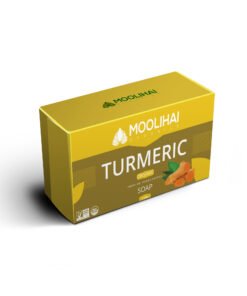

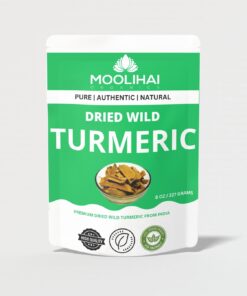
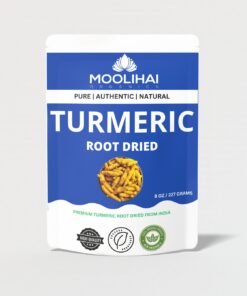
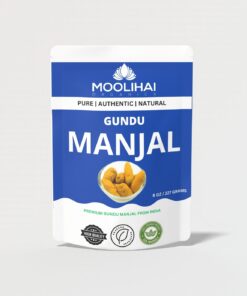

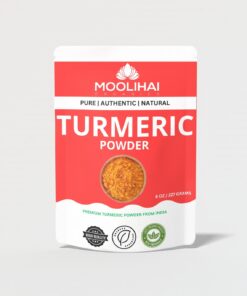
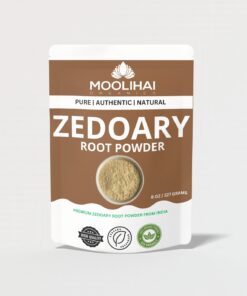
Ponnatharam Stone (Raw) | For Permanent Hair Removal
Vengai Paal | Black Bindi | Dhrishti Pottu | Vengai Pottu for Babies | 100% Natural
Original Edible Camphor | Pacha Karpooram | Bhimseni Camphor
Dried Avaram Senna Flower / Cassia Senna Auriculata / Aavaram Poo / Tarwar / Amaltas Leaves / Senna Auriculata / Avaram Poo / Sanay / Alexandrina / Tanner’s Cassia flower
Natural Dried Moringa Flower – Moringa Oleifera – Drumstick Tree Flower – Murungai Poo – Munagaku Flower
Akasa Garudan Kilangu / Redfruit Creeper / Corallocarpus Epigaeus
Pure Ponnatharam Powder For Hair Removal
Insulin Leaf Powder / Chamaecostus Cuspidatus / Costus Pictus / Spiral Ginger / Insulin Powder / Costus Igneus
Saussurea Obvallata Seeds / Brahmakamal Seeds / Queen of the night / Sacred Saussurea Kon Kapfu / Brahma Kamalam / Nishagandha
Achu Pottu for Babies | Bindi Mould Set | Baby Seratta – 1 Set
Kaunch Beej Powder |Poonaikali | Velvet Bean Powder | Mucuna Pruriens | Kapikacchu | Natural Nervine Tonic & Muscle Builder
Aalam Pazham / Banyan Fruit Powder / Ficus Benghalensis / Marri Palu / Bargad / Dodda Alada Mara / Peraal / Vat Vriksha Powder